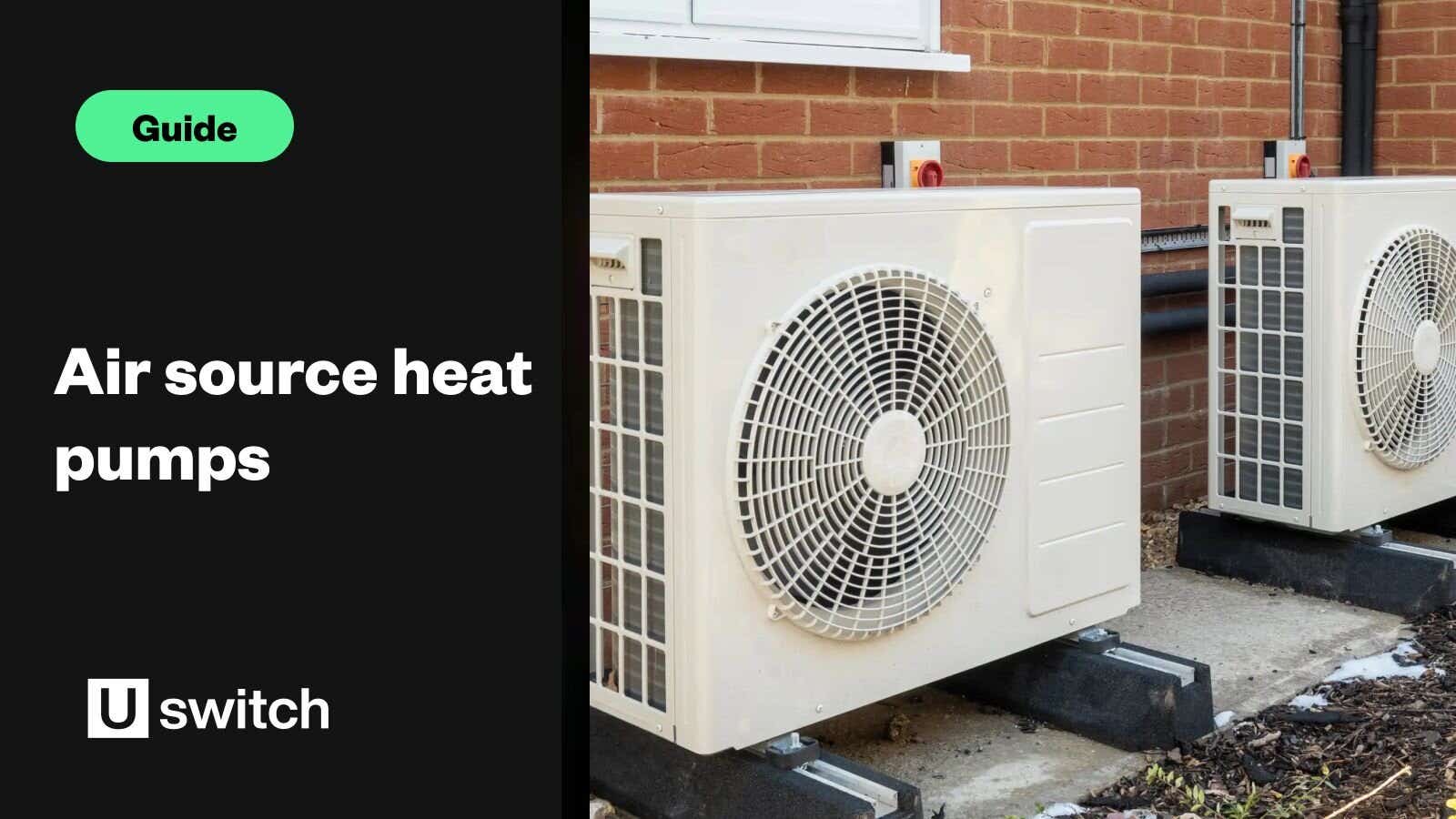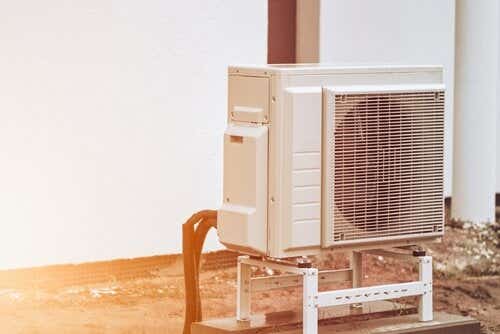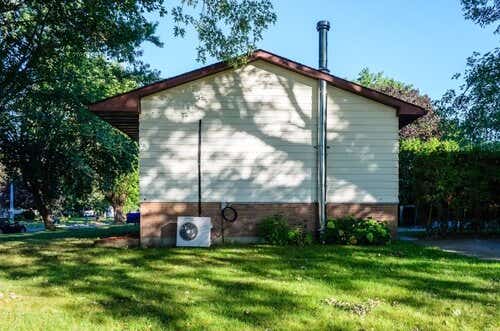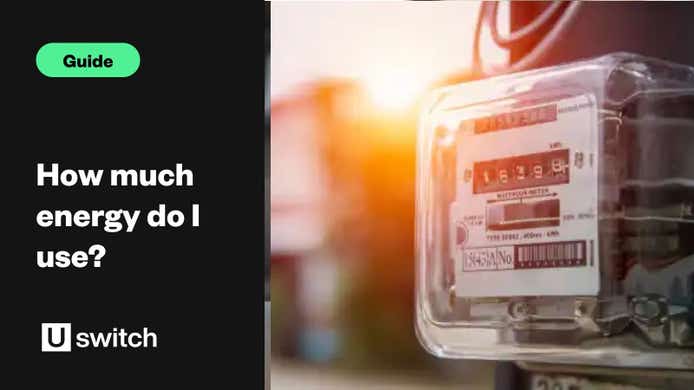When it comes to installing a new central heating system, most of us will immediately think of boilers.
However, boilers aren't the only way to heat your home and, thanks to central heating pumps and more specifically domestic air source heat pumps, they're not the most environmentally friendly way, either. The government has also announced £5,000 grants for homeowners to install air source heat pumps in an effort to decarbonise properties across the UK.
But how do air source heat pumps work? What do they cost? How many different air source heat pump systems are there? And is an air-to-air heat pump right for your home?
What are air heat source pumps?
Air heat source pumps, or air-to-air heat pumps, are a subset of central heating pumps. They are a close relative of the air-conditioning unit and refrigerator, but work in reverse.
The air heat pump is placed outside the home, usually around the back or side, and absorbs heat from the air in the atmosphere. Don't worry if it's cold outside, as an air-to-air heat pump can absorb heat from air that's as cold as -15°C. This air is then heated within the unit using a heat pump.
How do air source heat pumps work?
The heat pump works by taking the heat in the air and absorbing it into a fluid within the unit. The fluid is then compressed — which raises its temperature — and pushed into radiators or underfloor heaters to heat the property.
As a result, domestic air source heat pumps are semi-renewable and can save you money, but crucially they are also very low maintenance and don't need fuel deliveries to run.
Air source heat pump installation
Air source heat pump installation should be fairly straightforward - as they’re positioned at the exterior of the property, the main requirement is that they have a decent amount of space around them, as the air needs to be able to circulate. Unlike ground source heat pumps, there’s no digging required, but you may need planning permission depending on your property and local authority.
Inside, your boiler would be replaced by a smaller unit that contains the pumps and water to be heated by the air captured by the unit on the exterior.
Is an air heat source pump suitable for my property?
Deciding whether an air source heat pump is suitable for your property is the most important step. The heat pump mechanism uses electricity to heat the air but, as the pump works best on lower temperatures, the units are best suited to underfloor heating systems, or large radiators with a greater surface area.
Likewise, as the unit heats air at a lower temperature than conventional systems, it works best in well-insulated homes with effective insulation and draught-proofing. It also sits outside the property, so you need some free space for it to be attached to the wall or ground.
Air source heat pumps are a particularly good investment if you are building a property because this reduces the installation costs.
Is an air heat pump environmentally friendly?
It depends on what fuel you're replacing, but generally air heat pumps are environmentally friendly and produce less CO2 than traditional systems.
Because the main component being used for heating is air it is based on a renewable resource. However, the unit will still need some electricity to run so, while it's environmentally friendly in comparison to other forms of heating, it isn't free of carbon emissions.
Is an air source heat pump zero carbon?
An air source heat pump will be energy-efficient but not completely zero carbon because it needs electricity work - so unless the electricity comes from a purely renewable source like wind or solar, it can’t ever be zero carbon.
How much does an air heat pump cost?
The price of installing an air source heat pump is typically around £14,000, according to the Energy Saving Trust. The amount it costs to run will depend on your individual property, particularly whether you use underfloor heating or not, how big your home is, and how well it is insulated.
It will also depend on whether you set the system up correctly, which your installer should explain. It is likely that you will leave the heating on for longer for instance, but at a lower temperature.
Whether an air heat pump is cost-effective or not will depend largely on what fuel type it is replacing. If your property is attached to mains gas, it is unlikely that an air source heat pump will save you much money.
If, on the other hand, it will replace an electric or coal system, there is a good chance it will be a cost-effective solution.
Are there any air source heat pump grants?
There aren’t any specific air source heat pump grants, but initiatives like the Boiler Upgrade Scheme will offer homeowners up to £5,000 to install a low-carbon heating system in place of existing gas or oil heating and may be worth applying for instead.
What are the advantages and disadvantages of an air source heat pump?
They generate less CO2, so they're better for the environment
They don't need much maintenance once they're installed
You can use them for air-conditioning in summer
They use electricity more efficiently than electric heating units
You could be eligible for grants and even payments
You need a suitable property with sufficient space to handle a unit outside your property
Ideally your property should have underground heating installed to maximise the efficiency of the heat produced
They can be colder than traditional radiator units, so you may need to keep them on for longer
You won't see much saving if you're switching from mains gas
They're not supported by the Renewable Heat Incentive, so you won't receive any government payments for installing them.
What other types of central heating pumps exist?
For information on the various types of central heating pumps available and to discover which best suits your needs, have a look at our guide to central heating pumps and systems.
Can I get a green energy deal?
Green energy plans are certainly becoming more widely available as more suppliers offer them. To see which green energy deals are currently available, run an energy comparison by entering your postcode below and using the table filters to see green deals.
For more ideas on conserving energy, you can also have a look at our list of energy saving guides.




